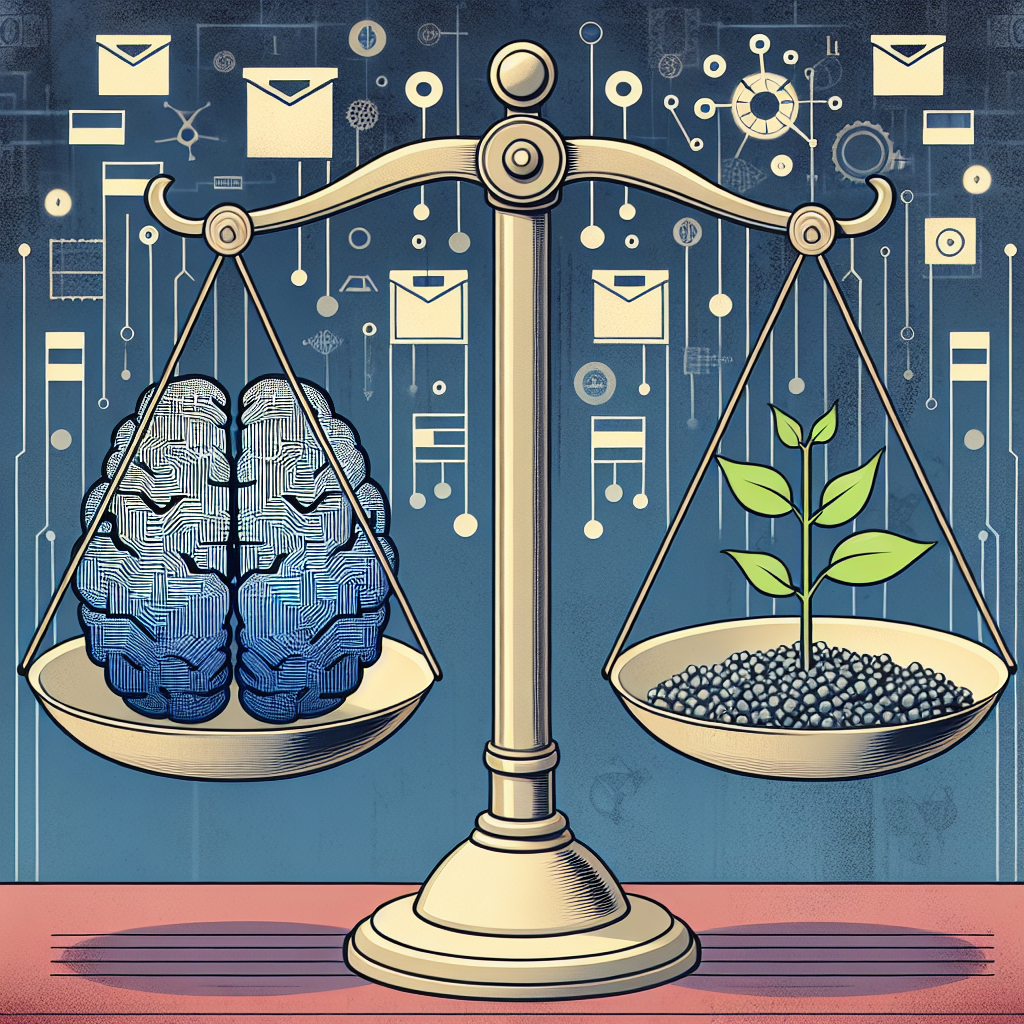Artificial Intelligence (AI) has been a transformative force in various industries, revolutionizing the way businesses operate and changing the way we interact with technology. However, the benefits of AI have often been limited to large corporations with significant resources to invest in the technology. This has led to concerns about the potential for AI to exacerbate inequality and hinder economic development.
AI democratization refers to the effort to make AI technology more accessible and affordable to a wider range of organizations, including small and medium-sized enterprises (SMEs) and startups. By lowering the barrier to entry for AI adoption, democratization aims to spread the benefits of AI more broadly and drive economic growth.
The Impact of AI Democratization on Economic Development
1. Increased productivity: AI has the potential to significantly boost productivity in various industries by automating repetitive tasks, improving decision-making processes, and enabling more efficient resource allocation. By democratizing AI, SMEs and startups can leverage these capabilities to streamline their operations and compete more effectively with larger companies.
2. Innovation and competitiveness: Access to AI technology can enable organizations to develop innovative products and services, improve customer experiences, and gain a competitive edge in the market. Democratization of AI can foster a culture of innovation among smaller businesses, driving economic growth and creating new opportunities for growth and expansion.
3. Job creation: Contrary to popular belief, AI democratization is not necessarily synonymous with job displacement. While AI may automate certain tasks, it also has the potential to create new job opportunities in areas such as data analysis, machine learning, and AI development. By empowering SMEs and startups with AI technology, democratization can support job creation and strengthen the labor market.
4. Access to data-driven insights: AI technology enables organizations to derive valuable insights from vast amounts of data, enabling smarter decision-making and more effective resource allocation. By democratizing AI, businesses of all sizes can access these data-driven insights and make more informed decisions, leading to better outcomes and improved performance.
5. Enhanced customer experiences: AI-powered tools such as chatbots, personalized recommendations, and predictive analytics can enhance customer experiences and drive customer engagement. By democratizing AI, SMEs and startups can leverage these tools to deliver more personalized and tailored services to their customers, increasing customer satisfaction and loyalty.
6. Cost savings: AI technology can help businesses reduce costs by automating manual processes, optimizing workflows, and improving operational efficiency. By democratizing AI, organizations can access cost-effective AI solutions that enable them to achieve significant cost savings and improve their bottom line.
FAQs
Q: How can SMEs and startups benefit from AI democratization?
A: SMEs and startups can benefit from AI democratization by gaining access to affordable AI technology that can help them boost productivity, drive innovation, create new job opportunities, access data-driven insights, enhance customer experiences, and achieve cost savings.
Q: Will AI democratization lead to job displacement?
A: While AI may automate certain tasks, it also has the potential to create new job opportunities in areas such as data analysis, machine learning, and AI development. AI democratization can support job creation and strengthen the labor market.
Q: What are some examples of AI-powered tools that SMEs and startups can leverage?
A: SMEs and startups can leverage AI-powered tools such as chatbots, personalized recommendations, predictive analytics, and automated workflows to streamline their operations, improve customer experiences, and drive business growth.
Q: How can SMEs and startups access AI technology?
A: SMEs and startups can access AI technology through AI platforms, cloud-based AI services, AI software solutions, and AI consulting services that are tailored to their specific needs and budget constraints.
In conclusion, AI democratization has the potential to drive economic development by empowering SMEs and startups with access to AI technology that can boost productivity, drive innovation, create job opportunities, enhance customer experiences, and achieve cost savings. By democratizing AI, we can ensure that the benefits of AI are more widely distributed and that all organizations have the opportunity to thrive in the digital economy.

